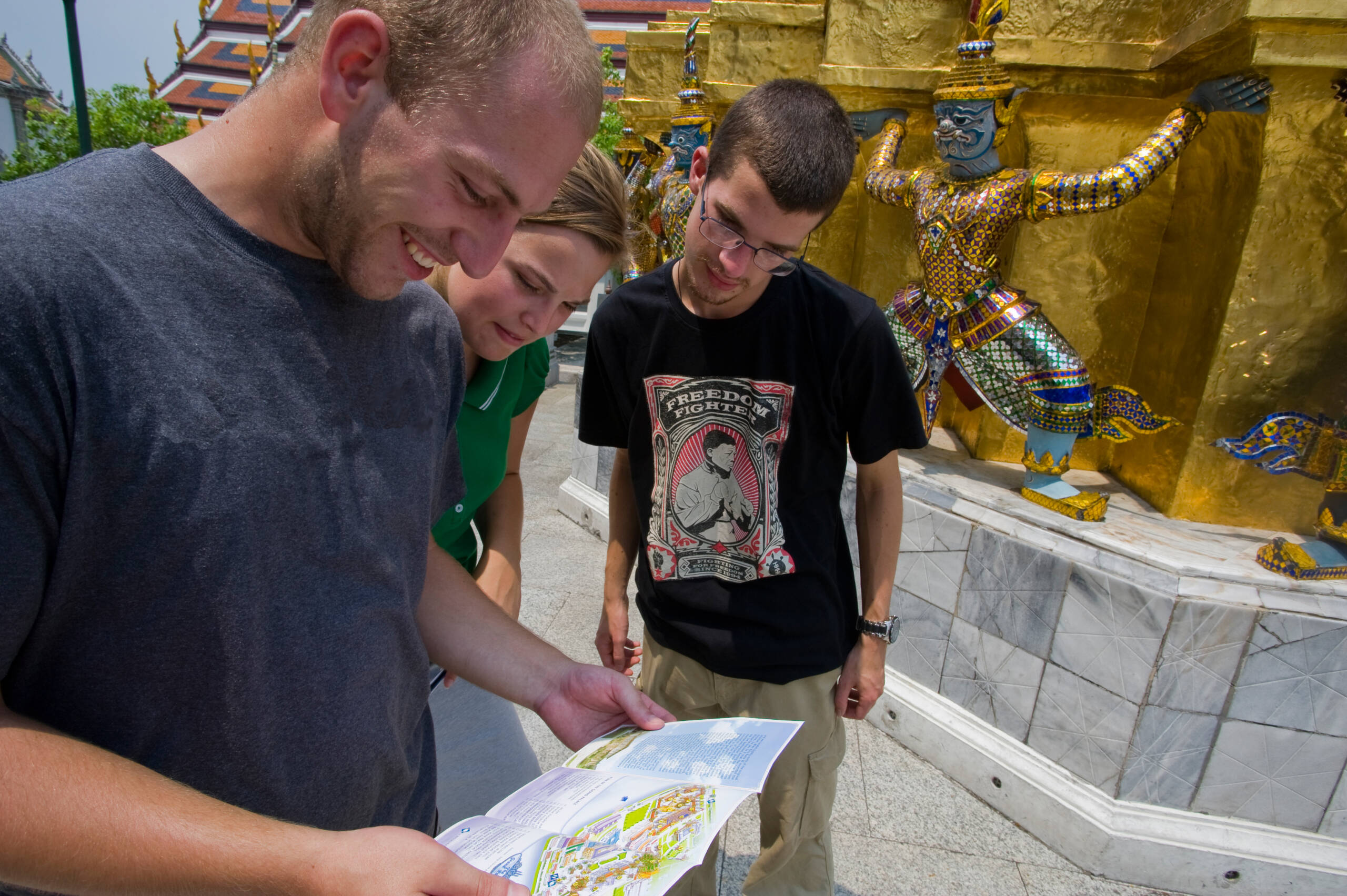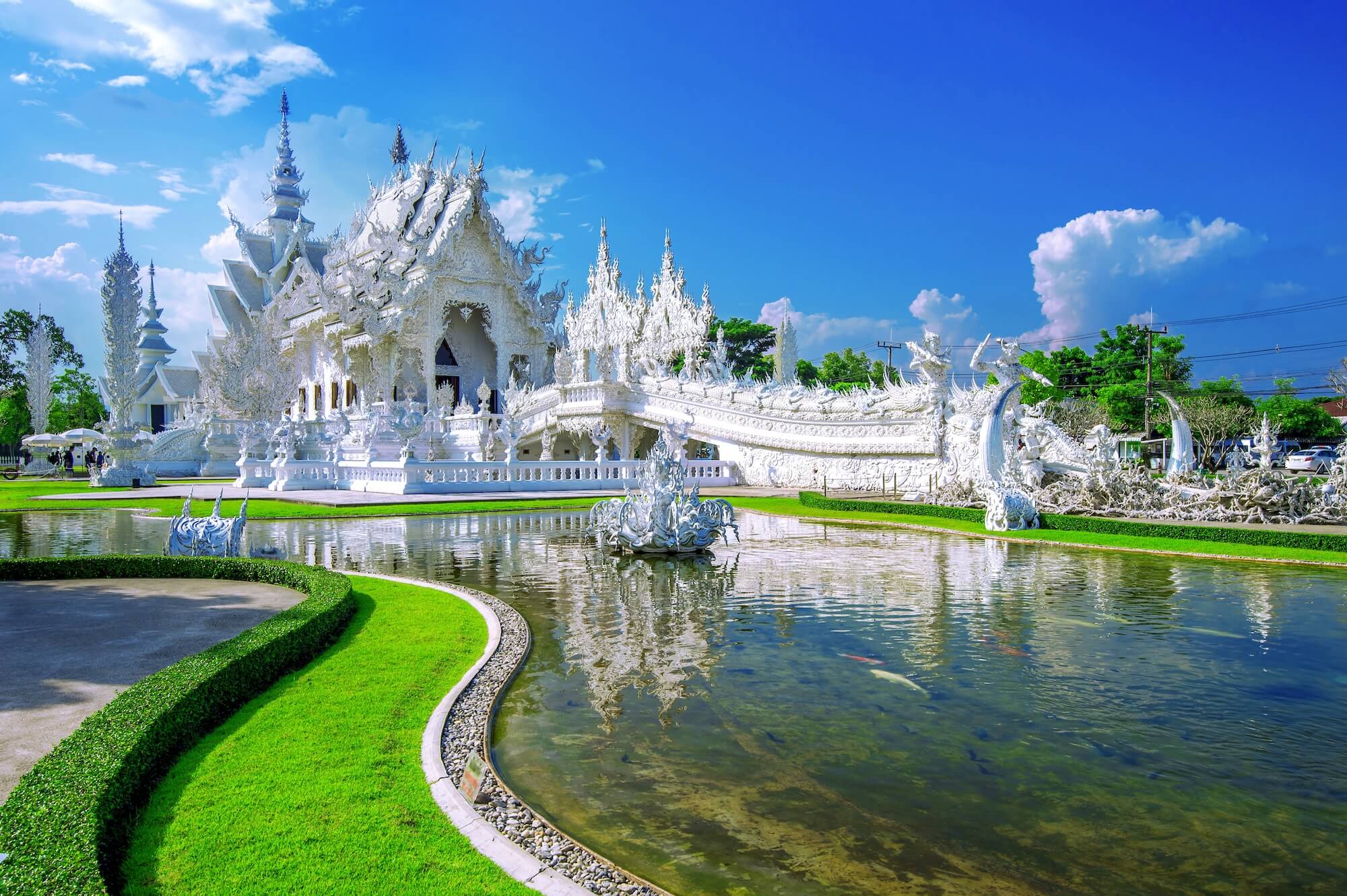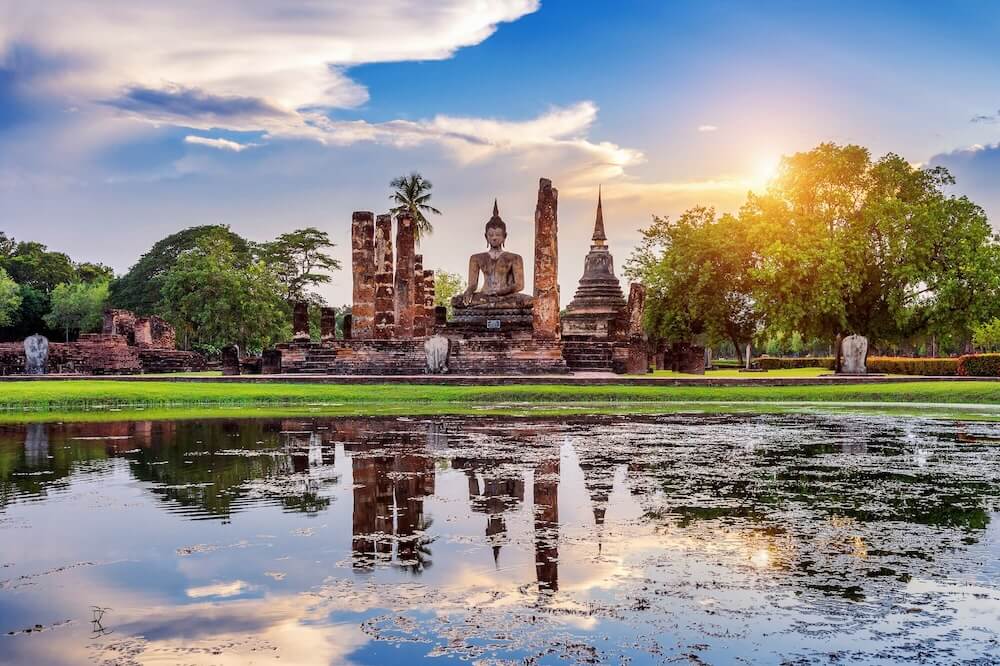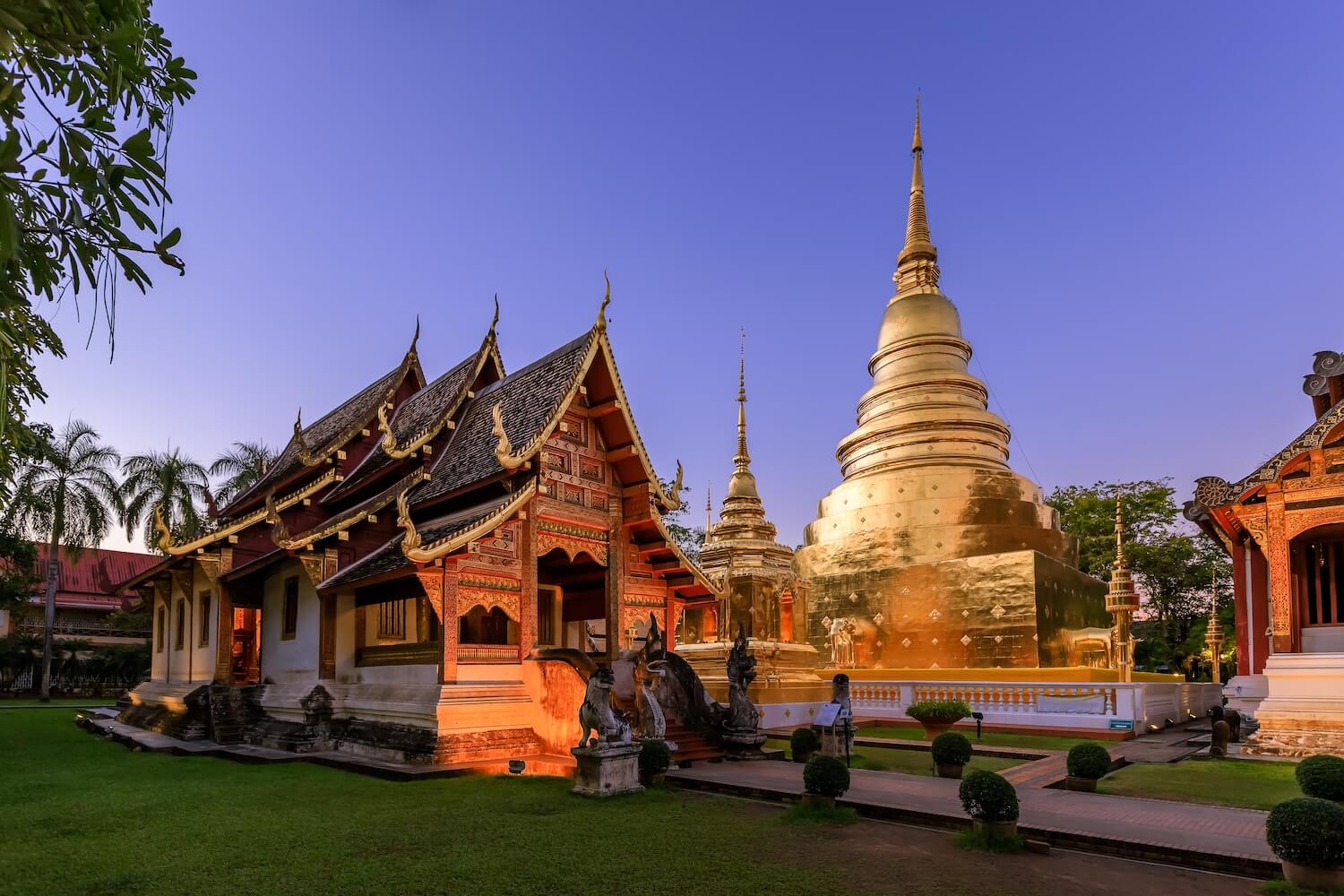Study Abroad Destination
Thailand
Vibrant culture and world-class beaches await.
Where Ancient Temples Meet Tropical Paradise
Tourists have long been drawn to the heart of Southeast Asia to experience Thailand’s tropical beaches, lively street markets, tranquil Buddhist temples, and top-tier diving spots. Against this kaleidoscopic backdrop, Semester at Sea students can look forward to warm hospitality, world-renowned cuisine, and much more.

Thailand Overview
Why Thailand?

Studying abroad in Thailand offers unmatched insight into Southeast Asian society, from centuries-old celebrations and cultural traditions to the daily rhythms of Thai life. Popular highlights include:
- Highly acclaimed hospitality
- Immersive history lessons
- Exquisite architecture
- Authentic dining experiences
The in-country excursions provided by SAS staff and local guides provide opportunities to take in a wide range of attractions without needing to personally handle logistics.
Semester at Sea
Thailand Experience
Semester at Sea students arrive at the bustling capital of Bangkok. Upon disembarking, voyagers are guided by port authorities to explore the city via taxis, with additional options to Bangkok’s efficient BTS Skytrain and MRT subway networks. Opportunities abound, such as:
- Exploring the vibrant markets of Chatuchak and floating markets like Damnoen Saduak
- Experiencing iconic landmarks such as the Wat Arun and Wat Pho Buddhist temples
- Visiting contemporary art galleries and museums, including the Bangkok Art and Culture Center
- Attending traditional Thai dance performances

Thailand
Voyager Travel Tips

Travel Tips for Asian Ports of Call
Every destination and port of call is unique, and each carries its own set of circumstances and expectations for travelers. Our top priority is the health and safety of our voyagers — we want all program participants to be as informed as possible so they can enjoy each port experience to the fullest.
Please be advised that the tips below provide a general overview of travel considerations, and are not intended to dissuade voyagers from experiencing this unforgettable destination.
Voyagers must depart the Bangkok port via taxi. For safety reasons, the port authority prohibits leaving the port on foot. The Grab app is available in Bangkok. Traffic can be significant, so voyagers should be sure to check travel times online in advance and plan accordingly. The elevated BTS Skytrain and underground MRT subway in Bangkok are generally safe, clean, and modern. Tickets can be purchased onsite.
This can vary depending on citizenship, but all travelers will need a valid passport. Depending on citizenship, some travelers may need to obtain travel Visas.
Thailand has a tropical climate, with high temperatures and humidity. There are two main categories of seasons — wet (including monsoons) and dry. Conditions are milder in the northern region of the country, where temperatures can dip to mid-50 degrees Fahrenheit. Thailand can experience typhoons, most likely from September to November.
Credit cards are widely accepted but it’s recommended to carry baht (cash) for use in markets and smaller establishments. ATMs are widely available in Bangkok. Only use ATMs in secure areas (i.e., within hotels or banks) that are well lit and populated. Tipping is not customary; however, 5%–10% seems to be average for great service.
Criminal activity is generally limited to non-confrontational street crime and crimes of opportunity (i.e., bag snatching and pickpocketing). Violent crime targeting foreigners is rare. Remain aware of belongings at all times, especially in markets, on Khao San Road, and in other crowded areas.
Tap water in Bangkok is regarded as safe to drink by international standards; however, many residents avoid it due to concerns over contamination from old pipes. Bottled or filtered water is recommended out of caution. Keep a safe distance from centipedes and scorpions, which can be venomous in Thailand.
The primary method of contacting SAS voyage staff is via phone or text. First, dial the exit code for your country — Canada and U.S. are 011. Then dial the county code for Thailand (+66), followed by the phone number.
All voyagers receive contact information for local police, fire, ambulance, medical emergency services, and the U.S. embassy and consulate.